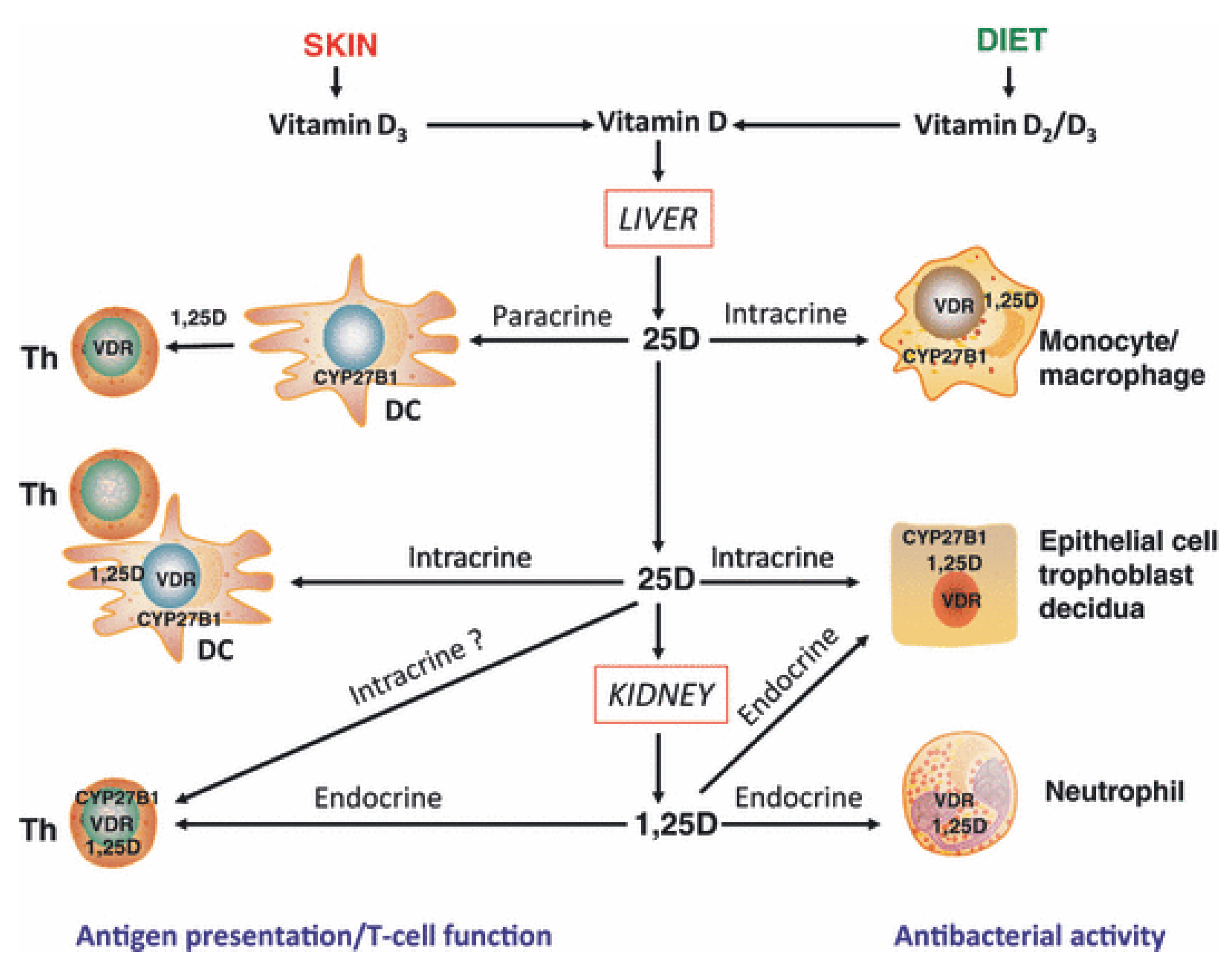Vitamin D & Immune System: Boost Your Health [Guide]
Could something as simple as a vitamin profoundly impact your body's ability to defend itself? The answer, backed by a wealth of scientific evidence, is a resounding yes: Vitamin D plays a critical, multifaceted role in the immune system, influencing everything from infection defense to the regulation of inflammatory responses.
The world of immunology is complex, a delicate dance of cells and signals designed to protect us from a constant barrage of threats. Within this intricate system, vitamin D has emerged as a key player, a regulator with far-reaching influence. Research consistently demonstrates vitamin D's impact on cells within the immune system. Understanding the mechanics of this interaction reveals its role in promoting overall health through various mechanisms, including enhancing immunity against infections while modulating inflammatory responses, a crucial factor in preventing autoimmune diseases.
To delve deeper, here's a summary of the role of Vitamin D in the immune system:
- Rakhi Gill Explore Her World From Tiktok To Threads
- Alyx Star Movies Bio More Everything You Need To Know
| Aspect | Details |
|---|---|
| Immune Cell Interaction | Vitamin D interacts with immune cells, influencing their function and response. |
| Inflammation Regulation | It affects genes that regulate inflammation, helping to fine-tune the immune response and prevent overreaction. |
| Innate and Adaptive Immunity | Vitamin D modulates both the innate and adaptive immune responses, offering a comprehensive impact on immune function. |
| Deficiency Consequences | Vitamin D deficiency is linked to increased autoimmunity and heightened susceptibility to infection. |
| Receptor Presence | Nearly all cells of the immune system contain vitamin D receptors, highlighting its pervasive influence. |
| Infectious Disease Risk | Low vitamin D levels have been associated with an elevated risk of communicable diseases, including viral and bacterial infections. |
| Supplementation Effects | Daily vitamin D intake can boost immune function and significantly reduce the risk of viral respiratory infections. |
The implications of vitamin D's role are far-reaching. Studies show a significant association between vitamin D deficiency and an increased incidence or aggravation of various health issues, including autoimmune diseases and infections. The question isn't just 'if' vitamin D impacts immunity, but rather, how can we optimize its effects?
Consider the impact of vitamin D on the different types of immune cells. Researchers at the University of Edinburgh, for instance, studied the effects of Vitamin D on two cell types: dendritic cells and T cells. These are part of our immune system.
The impact of vitamin D on the immune system is a prime example of its broad spectrum of actions on physiological and pathological processes. Originally recognized as a key regulator of bone and mineral homeostasis, vitamin D's influence extends far beyond this function. The discovery that almost all immune cells contain vitamin D receptors confirms the significance of vitamin D's role in immune function. Its role has also been confirmed following this discovery.
- Latest Movie Web Series Updates Hdhub Hd4hub Watch Now
- Where Is Isauro Aguirre Now Latest Updates On His Case Death Row Status
A strong immune system is crucial for overall health. It bolsters your body against illnesses like colds and the flu, aids in injury recovery, and helps maintain high energy levels. Vitamin D's importance becomes even more pronounced during certain times of the year, like winter, when sunlight exposurea primary source of vitamin Dis reduced.
Research has shown a relationship between vitamin D deficiency and the increased risk of various health problems. Approximately 40% of Americans have insufficient blood levels of vitamin D, and nearly 30% are deficient, according to recent findings. This underscores the importance of ensuring adequate vitamin D intake, especially during times of increased vulnerability, such as during the cold and flu season or periods of heightened stress.
It is also worth to note that with in vitro research, there's strong evidence for a physiological role of the vitamin D system in immune regulation. Immune modulation can be observed when immune cells are exposed to pharmacological doses of vitamin D metabolites. Vitamin D can influence how immune cells react and can change the immune system's response.
The question of whether supplemental vitamin D is an effective way to treat or prevent autoimmune disease is a reasonable one, given the evidence. The interplay between vitamin D and the immune system is complex. However, the research, as well as the implications for health, are very clear.
Vitamin D interventions are relevant for infectious and inflammatory skin diseases by affecting both innate and adaptive immune functions. One study reveals how vitamin D metabolites can dramatically influence the immune system by reducing immune cell activity. Therapy that targets vitamin D3 signaling may provide new approaches for such conditions.
It's vital to get sufficient vitamin D. This is why we need to make sure we're getting enough every day. When you have sufficient vitamin D, the immune system is able to perform the necessary adjustments to keep people healthy. It helps support healthy bones, teeth, and, a healthy immune system. Furthermore, the impact of vitamin D on the immune system underscores its significance beyond bone health.
So, how can you boost your daily vitamin D intake to support your immune system? One approach is through sunlight exposure, although this depends on factors such as the season, time of day, and skin pigmentation. Another option is incorporating vitamin D-rich foods, such as fatty fish (salmon, tuna, mackerel), egg yolks, and fortified foods (milk, cereals, orange juice) into your diet. Supplements are another option.
The effects of vitamin D on immune cells are complex, but research has shown its functions support the innate and adaptive immune systems. It also plays a critical role in supporting the immune system. Taking vitamin D daily can increase immune system function, including decreasing the risk of viral respiratory infections, even in the elderly. However, research indicates that taking vitamin D once a week in mega or bolus doses may be ineffective and could potentially lead to immune system compromise.
For any health-related questions, speaking with a registered dietitian or healthcare professional is always a good idea.



Detail Author:
- Name : Mrs. Ruth Thompson
- Username : tjacobi
- Email : maida.kerluke@carroll.info
- Birthdate : 2001-09-02
- Address : 14328 Zieme Causeway East Zionbury, WI 47917-2631
- Phone : 574-722-7691
- Company : Corkery-Gibson
- Job : Manufactured Building Installer
- Bio : Quos provident earum sed enim ullam aut. Earum aut voluptatum non. Incidunt molestiae voluptate praesentium. Voluptatibus laudantium ducimus voluptas impedit culpa consequuntur.
Socials
instagram:
- url : https://instagram.com/jensen_mohr
- username : jensen_mohr
- bio : Incidunt id fugiat est. Est et illo voluptatem iure nulla. Iusto totam nesciunt cupiditate sint.
- followers : 2616
- following : 2798
tiktok:
- url : https://tiktok.com/@jensenmohr
- username : jensenmohr
- bio : Blanditiis non deleniti eum eaque ut delectus nobis. Non incidunt saepe in.
- followers : 1108
- following : 2866
linkedin:
- url : https://linkedin.com/in/jensen.mohr
- username : jensen.mohr
- bio : Voluptatum tempore ut quo vel qui adipisci.
- followers : 1763
- following : 297
facebook:
- url : https://facebook.com/jensen.mohr
- username : jensen.mohr
- bio : Iusto quas omnis minima quo.
- followers : 4999
- following : 1346
twitter:
- url : https://twitter.com/jensen_mohr
- username : jensen_mohr
- bio : Harum exercitationem aut ratione. Est voluptas voluptas sequi ullam ullam repudiandae. Magni sit aut ex earum qui velit omnis.
- followers : 4795
- following : 1288